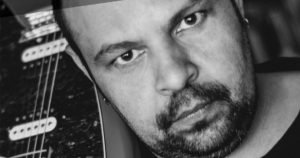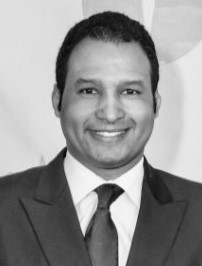
La Lógica de Dios
The Logic of God
San Anselmo
Uno de los primeros en racionalizar la existencia de Dios fue San Anselmo, un monje del siglo XI, que planteaba que Dios existe en base a que nuestra conciencia tiene su “necesidad”, es decir, un pensamiento llamado “prueba ontológica”.
La idea principal es que podemos imaginar seres irreales como un unicornio o un minotauro a sabiendas que no existen, pero a Dios no lo imaginamos, sino que lo concebimos, porque alberga en sí todas las virtudes posibles, incluida su propia existencia.
La base de este Ser que es el principio de todo, llamado Dios, amalgama todas las virtudes posibles, como la bondad, la belleza o la justicia, pero ha delegado en el ser humano la forma racional de utilización de estar virtudes.
Santo Tomás de Aquino
Santo Tomás de Aquino (1225–1274) fue un filósofo y teólogo italiano, quien aplico la comprensión de la doctrina cristiana para de darle a la religión un fundamento racional, creando la filosofía escolástica, que volcó en su libro Suma Teológica, donde explica que existe un principio de todo pero que no tiene un principio en sí mismo.
1- Fuerza
La física explica que nada se mueve sino es impulsado por alguna fuerza, una flecha necesita un arco y una pelota necesita un pie para moverse. Todos sabemos que una semilla necesita agua, tierra y luz solar para pasar a ser un árbol, pero muchos factores deben encontrarse para que esto ocurra, por lo tanto, una semilla necesita la fuerza de “alguien o algo” para transformarse en un árbol.
2- Causa
Todo tiene una causa, un principio y una necesidad. Para que exista un zapato debe existir primero la necesidad del zapato, la idea del zapato, el modelo, el cuero, la suela, la máquina, pero todo eso sería inútil si no existiera el zapatero. Es decir, cada causa para ser eficiente debe tener una necesidad anterior y así sucesivamente, entonces, esa infinita serie de causas no existirían si no existiera una “primera causa”.
3- Existencia
Todos los seres vivos (animales, vegetales y humanos) nacen, crecen, se reproducen y mueren, esa es la base de la existencia. Cada existencia es necesaria e imprescindible, para que el mundo tenga sentido. Pero sabemos que hubo un momento en que no existían los seres vivientes, solo piedras. Entonces surge la necesidad de que exista un Ser cuya existencia dependa de sí mismo, un “Ser creador de existencias”
4- Perfección
Todos tenemos parámetros de belleza, bondad y justicia. Todos podríamos enumerar infinidad de cosas bellas, porque tenemos un punto comparativo, según nuestra cultura y educación. Pero cuando tratamos de calificar algo por su perfección, no logramos encontrar en nuestra cultura y educación la magnitud de esa comparación. Esto implica que ha de existir un modelo cuyo grado de perfección escapa a nuestra mente, ya que es muy superior a nuestros parámetros.
5- Finalidad
Todos los seres tienen una finalidad. Por ejemplo, el fin del cuchillo es cortar correctamente. Pero los seres inanimados, que carecen de conocimiento, no pueden alcanzar su fin si no es porque una criatura inteligente los empuja a ello. Por ejemplo, somos los seres humanos los que, haciendo uso de los cuchillos, los llevamos a que cumplan su fin.
Los seres inteligentes tienden a fines más elevados, pero también obran conforme a un fin. Y de la misma manera necesitan una inteligencia más elevada que las guíe y conduzca hacia el cumplimiento de su finalidad. Esta inteligencia elevada, que dirige a todas las demás hacia su finalidad, es a lo que llamamos Dios.
Como se puede apreciar, las cinco vías no ofrecen solamente una justificación de la existencia de Dios, sino que adelantan algunos de sus atributos. Dios queda así descrito como motor inmóvil, que todo lo mueve sin ser movido, causa de todo lo demás, ser necesario, ser sumamente perfecto e inteligencia suprema.
———————————-
Saint Anselm
One of the first to rationalize the existence of God was Saint Anselm, a monk from the 11th century, who proposed that God exists based on the fact that our consciousness has its “need”, that is, a thought called “ontological proof”.
The main idea is that we can imagine unreal beings like a unicorn or a minotaur knowing that they do not exist, but we do not imagine God, but rather conceive him, because he contains within himself all possible virtues, including his own existence.
The base of this Being that is the beginning of everything, called God, amalgamates all possible virtues, such as goodness, beauty or justice, but has delegated to the human being the rational way of using these virtues.
Saint Thomas of Aquino
Saint Thomas Aquinas (1225–1274) was an Italian philosopher and theologian, who applied the understanding of Christian doctrine to give religion a rational foundation, creating scholastic philosophy, which he expressed in his book Summa Theologica, where he explains that There is a beginning of everything but it does not have a beginning in itself.
1- Strength
Physics explains that nothing moves unless it is propelled by some force, an arrow needs a bow and a ball needs a foot to move. We all know that a seed needs water, soil and sunlight to become a tree, but many factors must be found for this to happen, therefore, a seed needs the strength of “someone or something” to become a tree.
2- Cause
Everything has a cause, a beginning and a need. For a shoe to exist, there must first be the need for the shoe, the idea of the shoe, the model, the leather, the sole, the machine, but all of this would be useless if the shoemaker did not exist. That is, each cause to be efficient must have a prior need and so on, then, this infinite series of causes would not exist if a “first cause” did not exist.
3- Existence
All living beings (animals, plants and humans) are born, grow, reproduce and die, that is the basis of existence. Each existence is necessary and essential, for the world to make sense. But we know that there was a time when living beings did not exist, only stones. Then the need arises for there to be a Being whose existence depends on itself, a “Being that creates existences.”
4- Perfection
We all have parameters of beauty, goodness and justice. We could all list countless beautiful things, because we have a comparative point, according to our culture and education. But when we try to rate something by its perfection, we cannot find in our culture and education the magnitude of that comparison. This implies that there must exist a model whose degree of perfection escapes our minds, since it is far superior to our parameters.
5- Purpose
All beings have a purpose. For example, the purpose of the knife is to cut correctly. But inanimate beings, which lack knowledge, cannot reach their goal unless an intelligent creature pushes them to do so. For example, we human beings are the ones who, using knives, take them to fulfill their purpose.
Intelligent beings tend toward higher goals, but they also act in accordance with a goal. And in the same way they need a higher intelligence to guide them and lead them towards the fulfillment of their purpose. This high intelligence, which directs all others towards their purpose, is what we call God.
As can be seen, the five ways not only offer a justification for the existence of God, but also advance some of his attributes. God is thus described as an unmoved mover, who moves everything without being moved, the cause of everything else, a necessary being, an extremely perfect being and supreme intelligence.
























